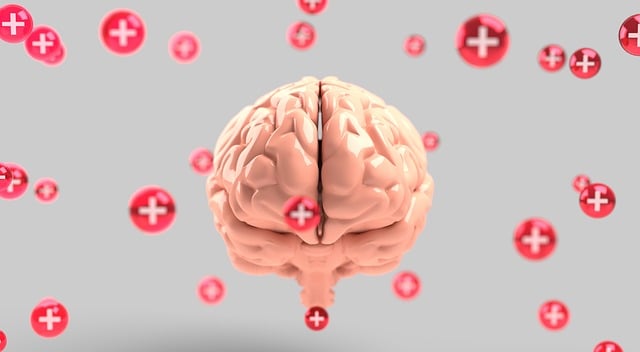Centennial Spiritual-Religious Issues Therapy offers a unique, holistic approach to coping with loss, grief, and bereavement by integrating spiritual and emotional health. This method helps individuals explore their feelings, develop resilience, and find meaning through compassionate guidance and mindfulness meditation. By addressing spiritual concerns with cultural sensitivity, this therapy provides support tailored to diverse belief systems, fostering inner strength and personal growth amidst sorrow. Modern practices reflect societal changes and prioritize holistic care, combining emotional well-being, social support, and spiritual considerations to navigate grief journeys effectively.
Loss, grief, and bereavement counseling are vital components of healing and recovery after a significant loss. This comprehensive guide explores these complex emotions, providing insights into their understanding and management. From spiritual-religious perspectives, we delve into the role of faith in counseling, offering therapeutic approaches tailored to diverse needs. Centennial spiritual-religious issues therapy ensures holistic support, addressing emotional, psychological, and existential challenges. Embrace this journey towards healing and discover ancient wisdom intertwined with modern practices for effective grief counseling.
- Understanding Loss, Grief, and Bereavement: A Comprehensive Overview
- The Role of Spiritual-Religious Issues in Counseling
- Therapeutic Approaches for Effective Support during Difficult Times
- Centennial Perspectives on Healing and Recovery
Understanding Loss, Grief, and Bereavement: A Comprehensive Overview

Loss, grief, and bereavement are complex emotional experiences that can significantly impact an individual’s well-being. Understanding these concepts is the first step towards healing. Loss refers to the absence or disappearance of something or someone valuable, while grief is the intense emotional reaction to loss, often characterized by feelings of sadness, anger, and confusion. Bereavement, on the other hand, is the period of mourning that follows a significant loss. It’s a natural process where individuals learn to adjust to life without their loved ones, though it can vary greatly from person to person.
Centennial Spiritual-Religious Issues Therapy offers a unique perspective on these profound matters, recognizing the interconnectedness of spiritual and emotional well-being. Through compassionate guidance, therapists help individuals explore their feelings, develop coping skills, and enhance their ability to manage mood and practice mindfulness meditation. This holistic approach supports people in navigating their grief journey, fostering resilience, and finding meaning amidst loss.
The Role of Spiritual-Religious Issues in Counseling

In many cultures and personal belief systems, spiritual-religious issues play a significant role in how individuals process loss, grief, and bereavement. Counseling that incorporates these aspects can offer profound support to those struggling with deep sorrow. Therapists skilled in this area create safe spaces for clients to explore their faith or lack thereof, helping them find solace and meaning within their personal spiritual landscape. This approach, often integral to Centennial Spiritual-Religious Issues Therapy, enables individuals to cope with the emotional weight of loss by tapping into their inner strength and cultural traditions, fostering resilience against potential burnout prevention strategies.
Addressing spiritual-religious concerns in counseling also demands cultural sensitivity in mental healthcare practice. Therapists must be attuned to the diverse belief systems that shape people’s perceptions of grief, ensuring inclusive and non-judgmental support. By embracing this perspective, counseling becomes a holistic journey where clients can navigate their grief while cultivating inner strength development, ultimately finding comfort and personal growth amidst their sorrow.
Therapeutic Approaches for Effective Support during Difficult Times

In the face of loss, grief, and bereavement, individuals often seek therapeutic support to navigate their emotional journey. One effective approach is Centennial Spiritual-Religious Issues Therapy, which recognizes the profound impact of faith and spiritual beliefs on one’s mental well-being during difficult times. This form of counseling encourages individuals to explore their personal values, find solace in their spiritual traditions, and develop coping mechanisms aligned with their deepest convictions. By integrating spiritual practices into therapy, clients can experience a sense of peace, enhanced resilience, and improved ability to process grief.
Moreover, fostering Positive Thinking is a key component of supportive counseling. Therapists help individuals reframe negative thoughts and beliefs associated with loss, replacing them with more adaptive and hopeful perspectives. This approach, combined with Cultural Sensitivity in Mental Healthcare Practice, ensures that the unique cultural and religious backgrounds of clients are respected and incorporated into their therapeutic journey. By addressing spiritual and cultural aspects of grief, therapists can provide a holistic framework for anxiety relief, enabling individuals to heal and find meaning in their experiences.
Centennial Perspectives on Healing and Recovery

In the realm of grief counseling, a significant shift has occurred over the past century, reflecting broader societal changes and an evolving understanding of human psychology. Historically, religious institutions often served as primary sources of comfort and healing during bereavement, with spiritual-religious therapy being a cornerstone of support. Today, while these roots remain relevant for many, contemporary practices have broadened their approach to include diverse therapeutic modalities. This shift is marked by the recognition that grief is a complex emotional journey unique to each individual.
Centennial perspectives on healing and recovery emphasize the importance of time, self-reflection, and social support in managing loss. Modern therapy techniques, such as those focused on promoting emotional well-being and enhancing emotional intelligence, offer tailored strategies for coping with grief. By integrating these methods with an understanding of spiritual-religious issues, counselors can provide holistic care that addresses both the mind and spirit. Furthermore, burnout prevention is a growing concern in this field, ensuring professionals are equipped to support clients over extended periods, fostering effective healing and recovery.
Loss, grief, and bereavement counseling are essential aspects of healing and recovery, offering support through profound emotional journeys. By integrating spiritual-religious issues into therapy, counselors can provide comprehensive care, addressing the unique needs of individuals navigating these challenging times. This holistic approach, enhanced by centennial perspectives on healing, empowers folks to find solace, process their losses, and eventually dance towards a metamorphosis of resilience. Effective therapeutic strategies, when coupled with an understanding of spiritual-religious contexts, can be transformative, leaving a lasting positive impact on those facing life’s most difficult transitions.










